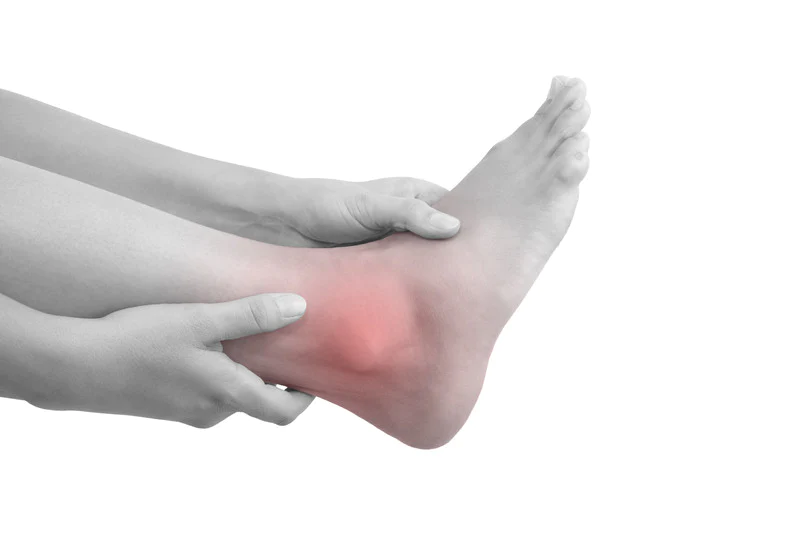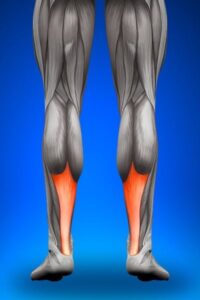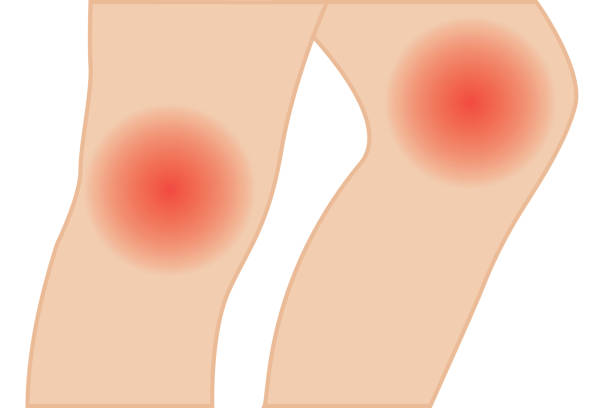



What is Ankle Tendonitis?
It’s an inflammation of a tendon in the foot or ankle, known as tendonitis, occurs due to repetitive motion in the ankle joint.
Cause
The cause often results from overuse, while other factors like infections, rheumatic diseases (like gout or arthritis), and injuries (such as sprains) can also contribute to inflammation in the tendons of the foot or ankle.
Risk Factors
Below are some of the risk factors include:
*Engaging in repetitive sports, particularly those involving the ankle like running, increases the likelihood of foot or ankle tendonitis.
*Individuals over 40, men, and those overweight face a higher risk of developing tendonitis in the foot or ankle.
*Wearing worn-out, unsupportive shoes is a contributing factor to the development of tendonitis.
*Previous injuries to the tendons in the foot can also contribute to the likelihood of developing tendonitis.
Symptoms
The primary symptoms include localized pain, swelling, and stiffness. Pain, the initial indicator, tends to lessen with time but may return when you use the foot or ankle extensively. If the pain and swelling persist even after rest, it’s crucial to actively seek an appointment with your primary care doctor, a podiatrist, or an orthopedic specialist for evaluation and appropriate guidance.
Diagnose
Your primary care provider, podiatrist, orthopedist, or sports medicine physician will diagnose foot or ankle tendonitis through a thorough physical exam and by reviewing your medical history.
In more severe cases, the physician may order an x-ray or MRI to assess fractures, tendon ruptures, or calcifications, guiding the choice of alternative treatments when necessary.
What are the treatments for Ankle Tendonitis?
Rest is the most recommended but for most severe cases, below are some treatments that can alleviate the pain:
*Treatment options include orthotics, splints, and physical therapy.
*Medication or steroid injections may be prescribed for pain.
*In severe cases, options like tendon transfer surgery or ultrasound-guided procedures are considered.
*Your healthcare provider guides you in choosing the best treatment based on your individual situation.
How fast is the recovery for Ankle Tendonitis?
Recovering from tendonitis takes time, and not following the doctor’s orders to rest the affected area can prolong the recovery process.
How effective does an Ankle Brace for Ankle Tendonitis?
Ankle braces support and stabilize the ankle, lowering the risk of injury. They’re proven to be effective in treating Achilles tendonitis by reducing swelling and inflammation. These braces apply pressure to ease pain, support the tendon, and prevent excessive ankle movement, helping avoid worsening the condition.
Where to buy Ankle Brace?
Daphco Medical Equipment has you covered! Explore our range of braces, from back to ankle. Visit our store for a suitable ankle brace. If you’re a Medicare beneficiary, complete the contact form, and we’ll reach out to guide you on getting braces covered by your insurance.
Search Articles
Latest Articles
28th Feb, 24
23rd Feb, 24
20th Feb, 24
15th Feb, 24
13th Feb, 24



 888-616-4156
888-616-4156 



 28th Feb, 24
28th Feb, 24 


